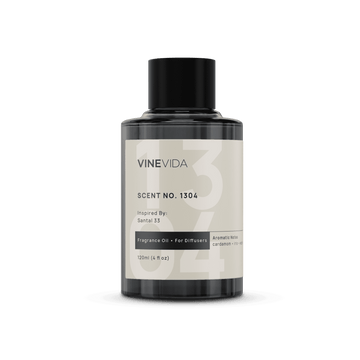Scientific Name: Mentha Spicata L
Origin: China
Plant Part: Herb
Scent: Minty, Fresh, and perhaps Slightly Fruity
Color: Clear
Consistency: Thin
Perfumery Note: Top - Middle
Initial Aroma Strength: Medium
Extraction Method: Steam Distilled
Spearmint Essential Oil: Uses, Benefits, and Blends
Famous for its clean, refreshing aroma, mint has been around for thousands of years. Not quite as aggressive as its cousin, peppermint, spearmint essential oil can be a great oil to use for massages. Add a few drops to your favorite carrier oil and convince your partner to give you a cool and soothing foot rub at the end of a hard week. If they’re lucky, you can even return the favor! Let the stimulating minty aroma of VINEVIDA’s spearmint put some pep in your step.
You likely also know spearmint by its common name, which is garden mint. Known botanically as Mentha Spicata, spearmint grows naturally in many parts of the world. It is also one of the oldest herbs known to men, depicted in the Ebers Papyrus as well as in works by the Egyptian naturalist Pliny the Elder. The Ebers Papyrus dates back to 1550 BCE and cites mint as a tool to help digestion. Today, you will most often find mint in oral health products, such as toothpaste and mouthwash. It is also a favorite in aromatherapy, particularly as an additive to massage oil.
Spearmint Essential Oil Benefits: Component Breakdown
- Carvone: Carvone is a terpenoid, and is responsible for the minty fragrance and flavor of spearmint. It is a botanical antifungal agent and also an insect repellent. You will most often find carvone in use as a flavoring agent, particularly in gums and lozenges. Carvone contributes a lot to spearmint essential oil benefits.
- Limonene: Limonene is both liquid and colorless and classified as a monoterpene. The isomer found in spearmint oil is the rare occurrence of limonene, and its aroma is reminiscent of that of turpentine.
- Dihydrocarvone: Dihydrocarvone is a plant metabolite, which means it plays a biological role in a plant’s growth and life cycle. In the food industry, you will often see it added for flavoring.
- Octanol: Octanol is also a plant metabolite. It appears clear and colorless but has a strong, aromatic odor.
- Menthone: Menthone offers a minty flavor and fragrance and is a monoterpene that naturally occurs in the essence of many plants. It is mainly used in flavoring, cosmetics, and fragrances.
- 1,8 Cineole: The more common name for cineole is eucalyptol. It is a monoterpenoid, and you will find it in many oral health products as well as in cold and flu medications. It is a colorless liquid that smells strongly of camphor. 1,8 Cineole is responsible for many spearmint essential oil benefits.
Spearmint Essential Oil Uses: For Wholesale Purposes
Natural Pesticide
As foods like wheat, corn, and other dried goods make their way from farms to your table, one of the biggest concerns is pest control. These dry goods travel through shipping containers and warehouses along the way, with plenty of opportunities for infestation to occur. Some of these insects, such as weevils, appear so small (especially in the egg and larvae stage) that you need a magnifying glass to see them. As researchers look for safer and more effective methods to control these pests, studies have been done on spearmint oil. Results indicate that both spearmint oil and powder are effective against certain wheat pests, showing improvement over chemical control treatments. Using spearmint will also help prevent resistance issues, as the oil contains many different constituents rather than a singular pesticide.
Dental Care
Spearmint oil is a prevalent ingredient in many toothpastes and mouthwashes. It is both an antibacterial and antifungal agent, believed to be able to reduce unwanted bacteria, such as those causing gum disease and caries (cavities). However, it is crucial to understand that these products are carefully tested and studied. This means they are meant to be used in a certain way, just like raw essential oils. Never ingest essential oils, as the concentration level is much too high to be safe. Only use products that are specifically formulated for use in oral health care, and follow appropriate guidelines. Dental care is one of the main ones from the list of spearmint essential oil uses.
Massage Therapy
While spearmint oil still offers up the mint family’s signature cooling properties, it is milder than its cousin, peppermint. Try adding a few drops of spearmint oil to your favorite massage oil, then rub into sore feet and muscles.
Soap Making

We can't miss soap making from the list of spearmint essential oil uses. The properties of spearmint also make it a fantastic addition to soaps. Wake up with the stimulating sensation of cooling mint by creating your skin-tingling soaps. The mint will add a fresh and invigorating scent, and its antifungal properties will help combat bacteria. Spearmint oil is perfect for more masculine soaps, mainly when used in combination with woodsy oils such as cedarwood.
What Blends Well with Spearmint Essential Oil?
Spearmint pairs great with other herb oils, such as Rosemary, Thyme, Oregano, and Peppermint. You can also try it with citrus oils, like Lemon, Lime, and Grapefruit, for a bright, uplifting aroma.
Is Spearmint Oil Safe For Dogs?
No. Oils in the mint family—including spearmint and peppermint—are toxic to dogs and cats. Animals should never come in direct contact with any essential oil, but spearmint oil, in particular, should not be used around pets.
If you plan on using other essential oils around your dog, it is important to check with a veterinarian first. Along with mint oils, many others can be toxic. The best method of use is passive diffusion, such as jewelry or reeds. These won’t be as overpowering to your pet, especially if you take care to use them in a well-ventilated area, with an open door so your four-legged friend can leave the room if they wish.
Read More: Oil Safe for Dogs.
Precautions
Similar to pets, humans should never ingest essential oils due to their concentration levels. While some supplements containing spearmint on the market are specifically formulated for internal use, raw essences are not. Additionally, if you wish to use spearmint oil topically, it is necessary to dilute it. Use a carrier oil, such as Coconut, Jojoba, or Sweet Almond, following the National Association for Holistic Aromatherapy guidelines.
Flash Point
77° C
Conclusion
Spearmint essential oil has been around for centuries, used in a variety of ways over the years. Today, you will mostly find it in oral health care products, such as mouthwash and toothpaste. Spearmint oil is both an antibacterial and antifungal agent and is effective as a natural pest repellent. Keep spearmint oil away from pets, and take care to follow proper guidelines for use.
You may also like
Recently viewed

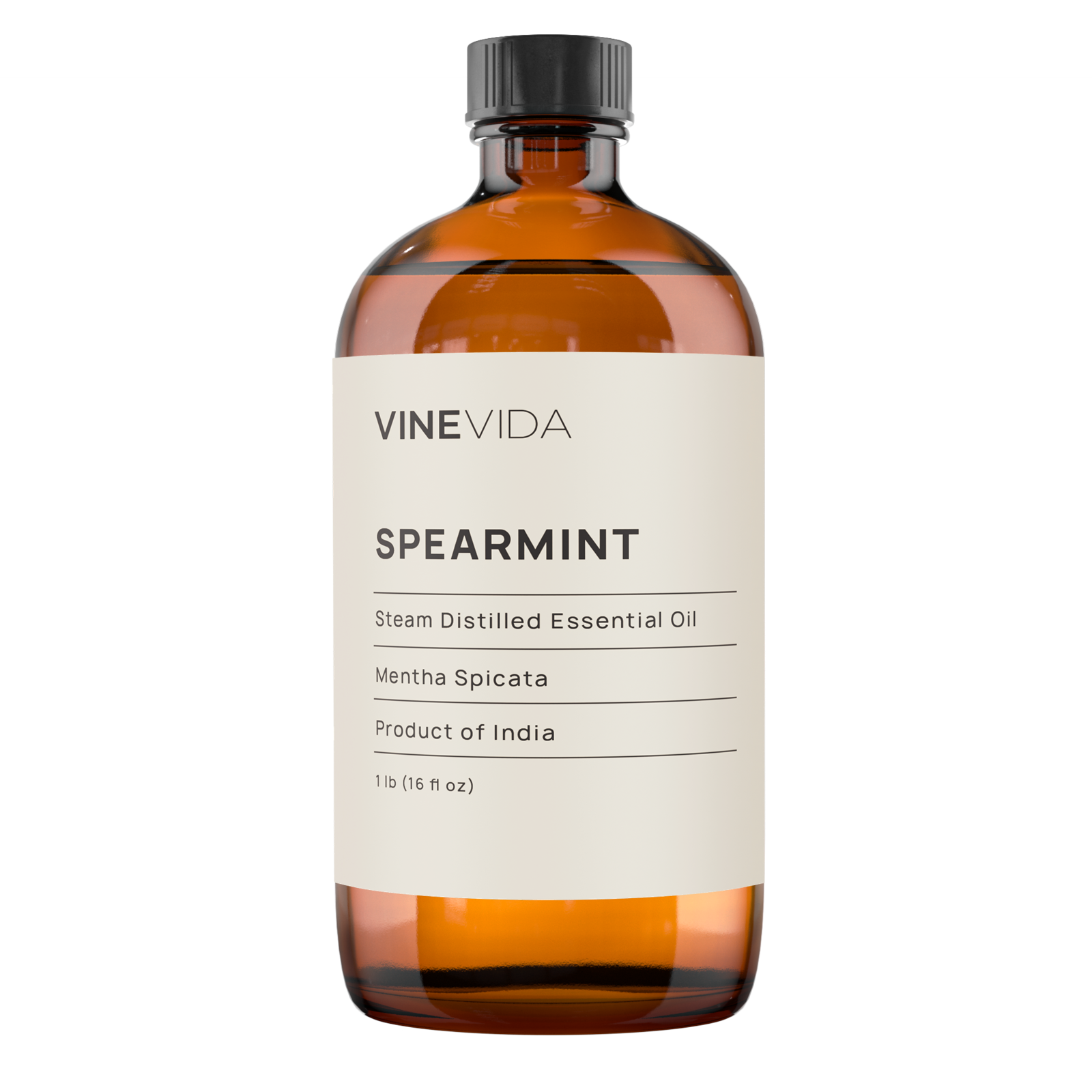
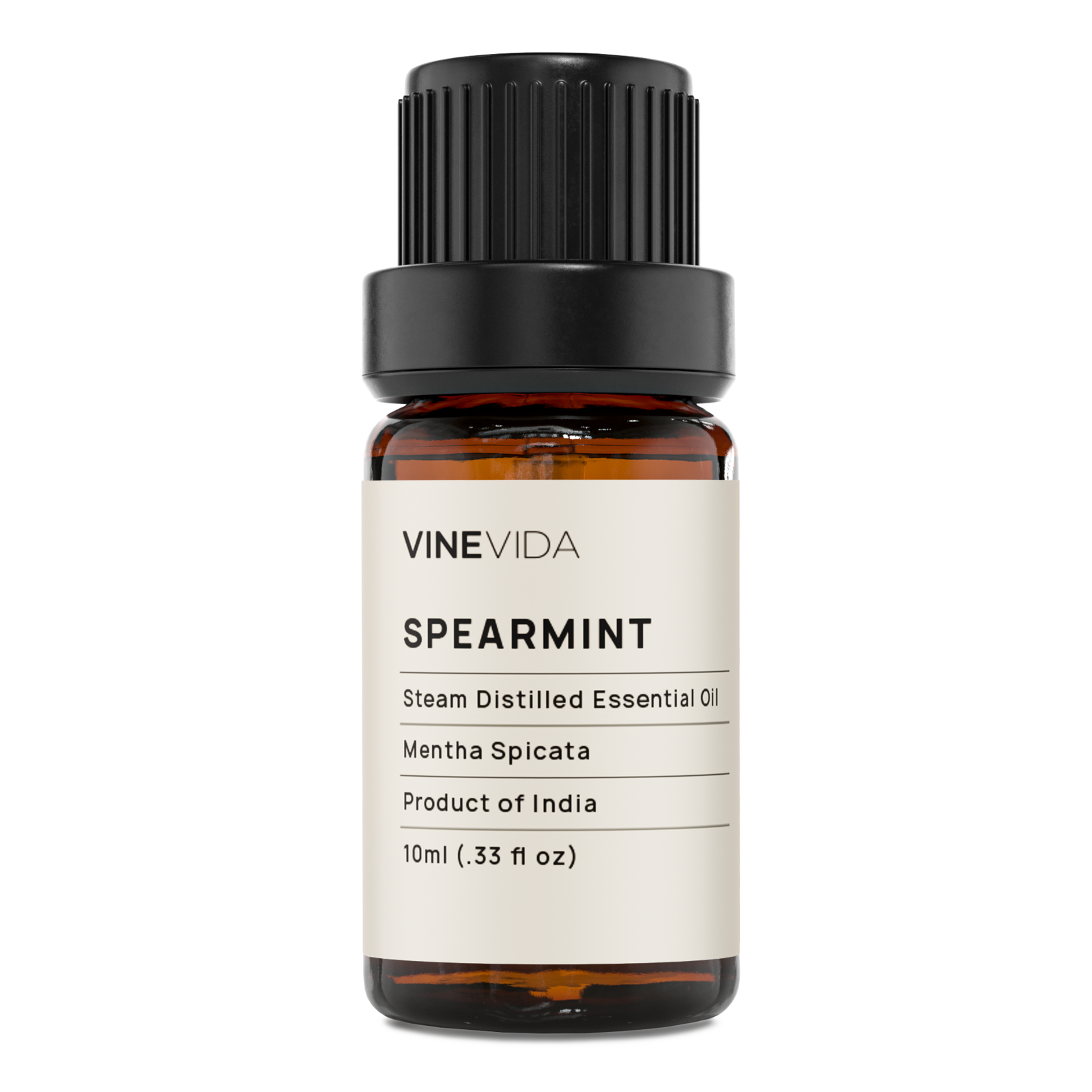
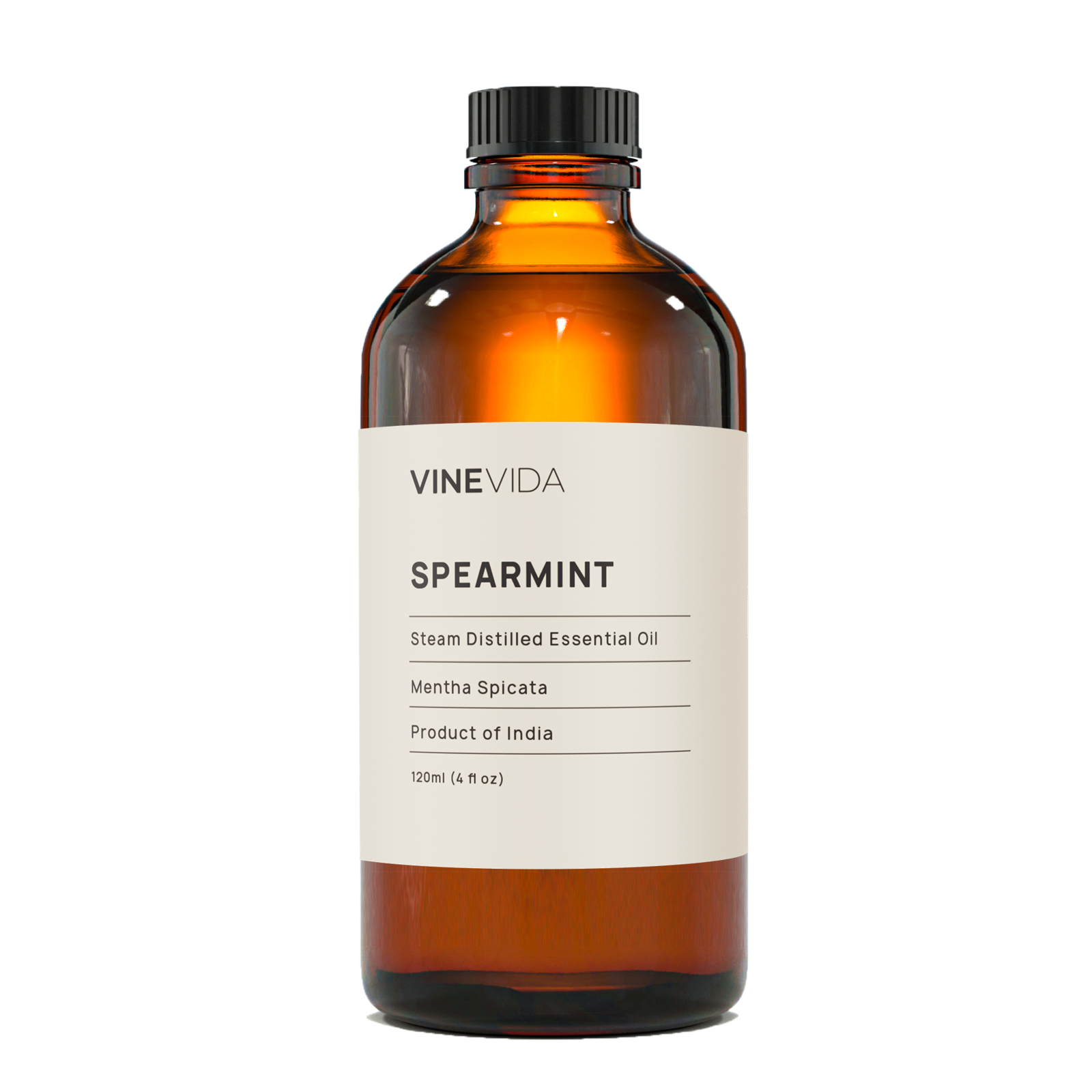
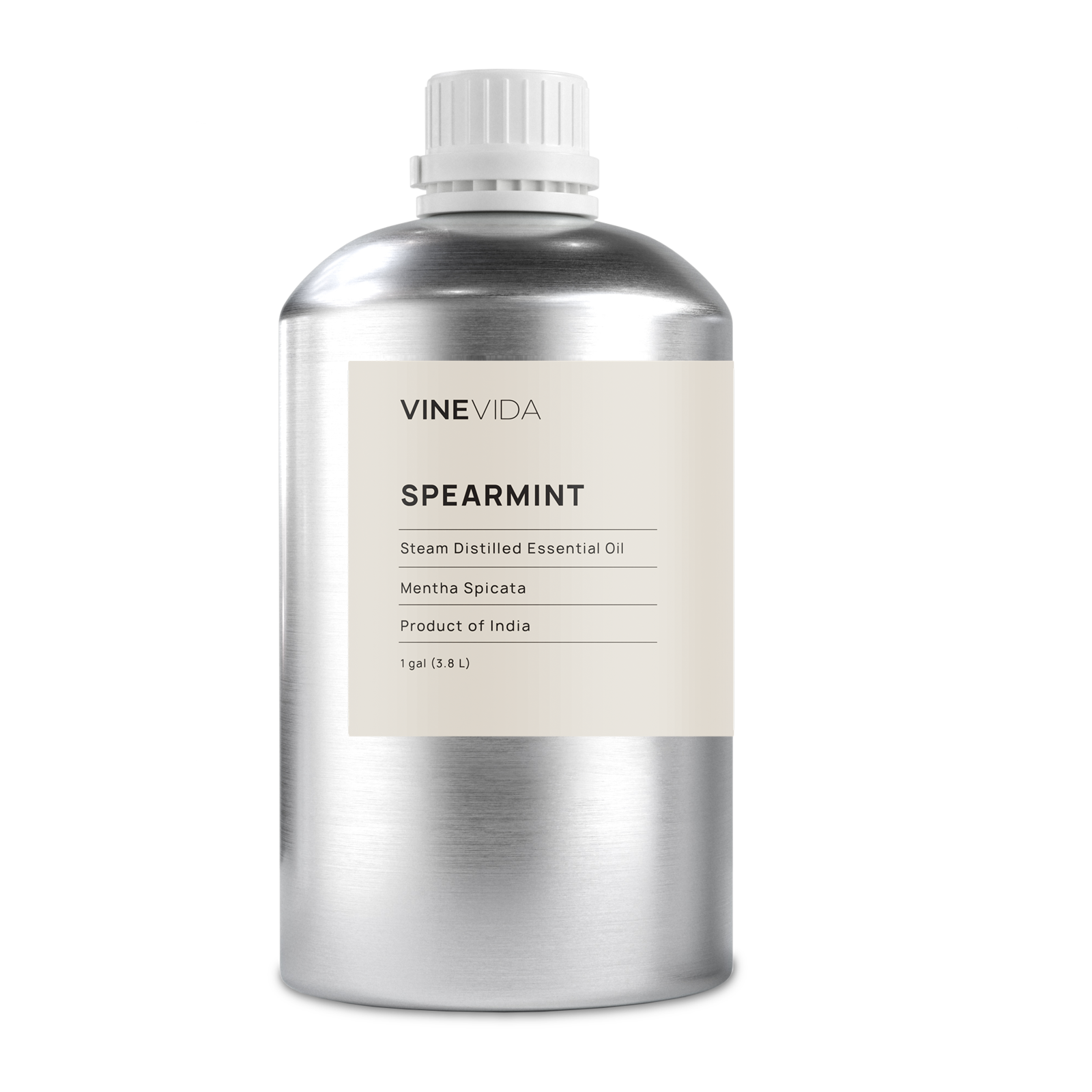
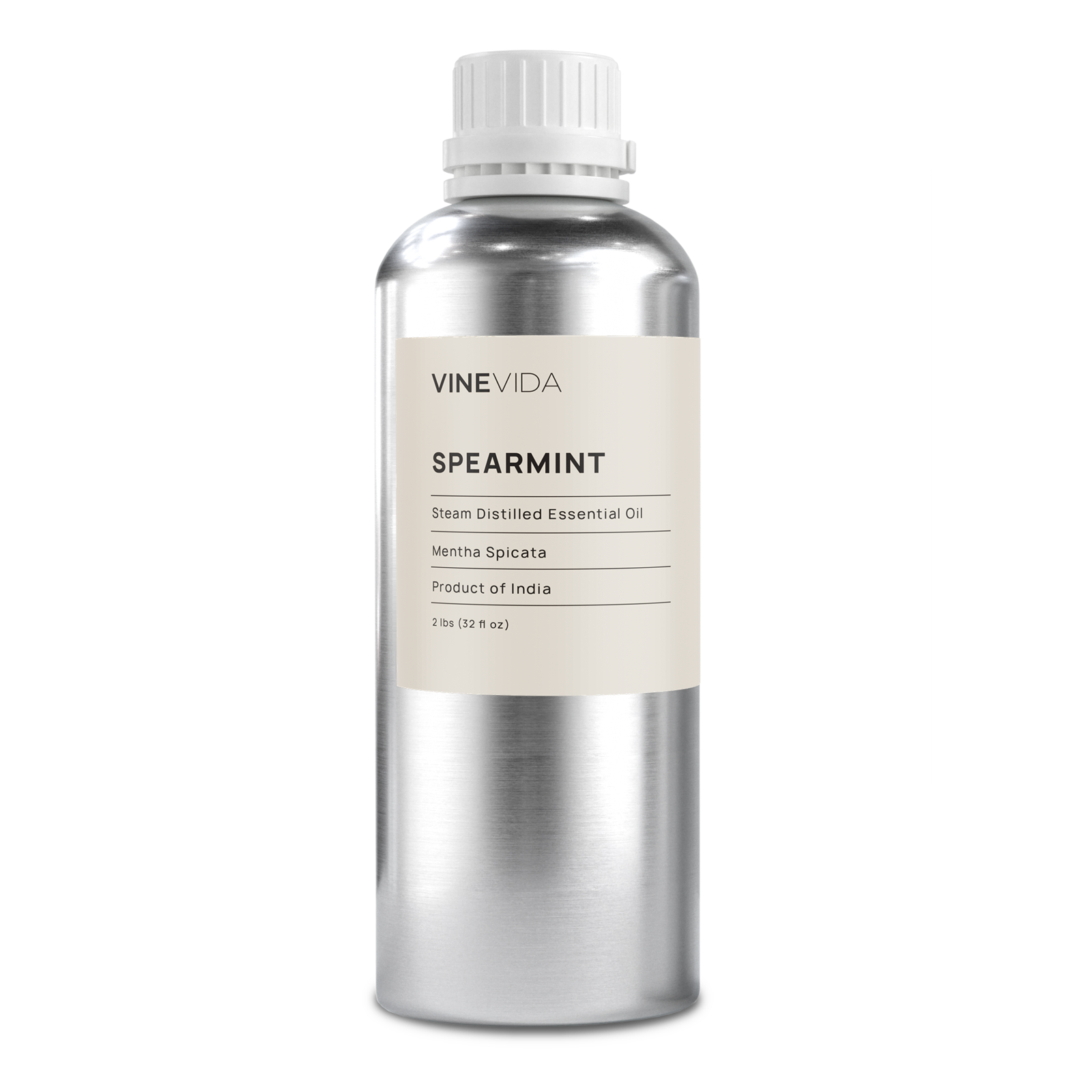
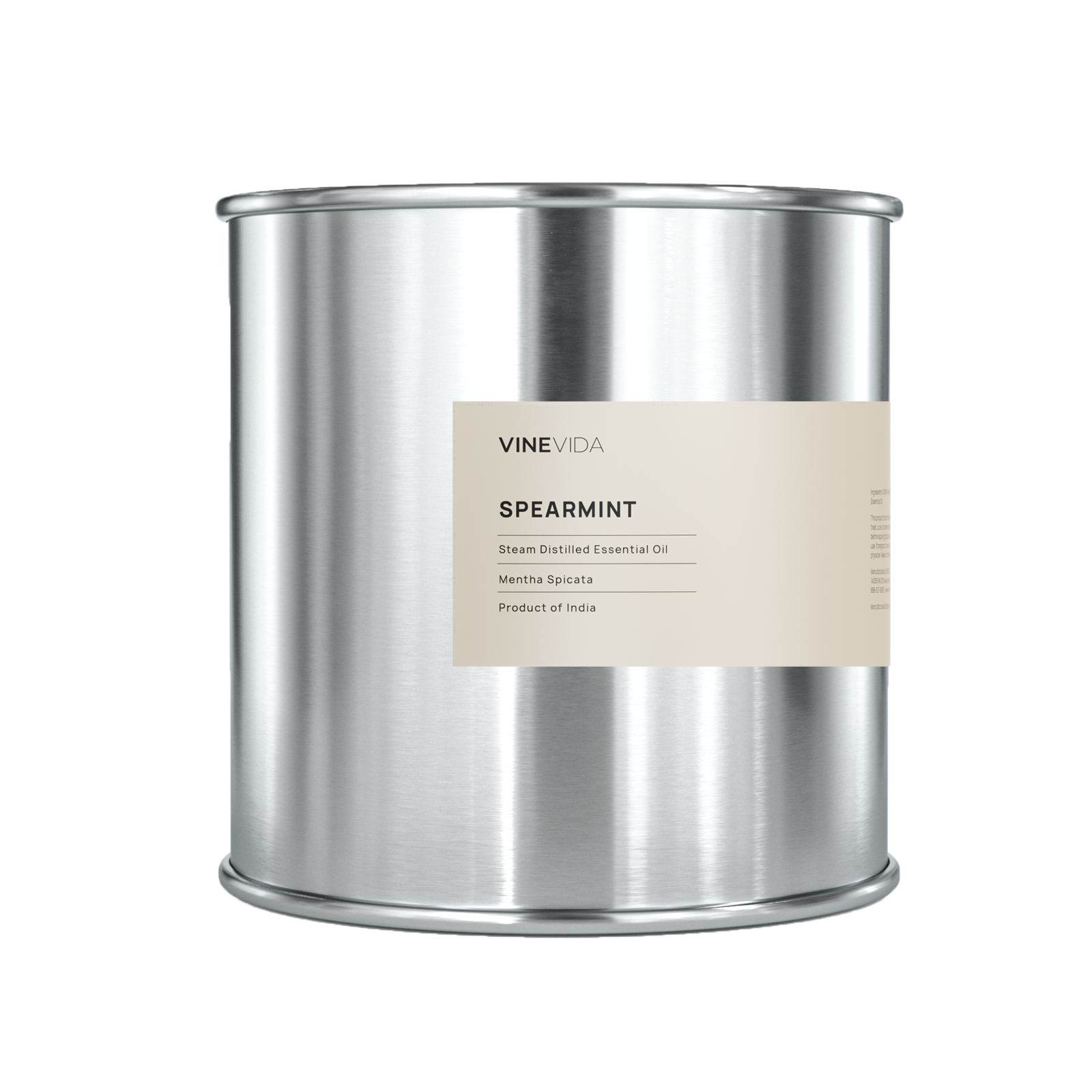
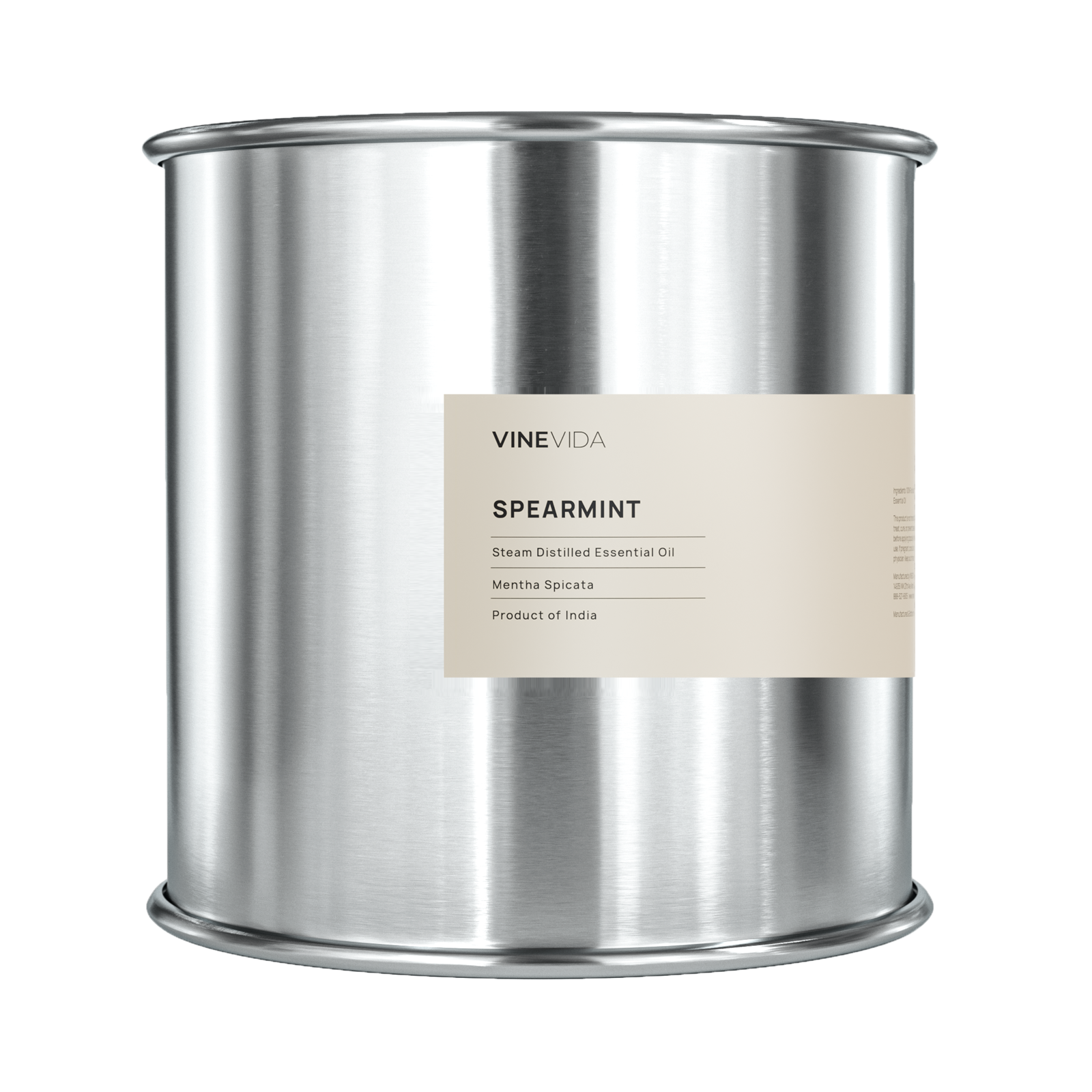
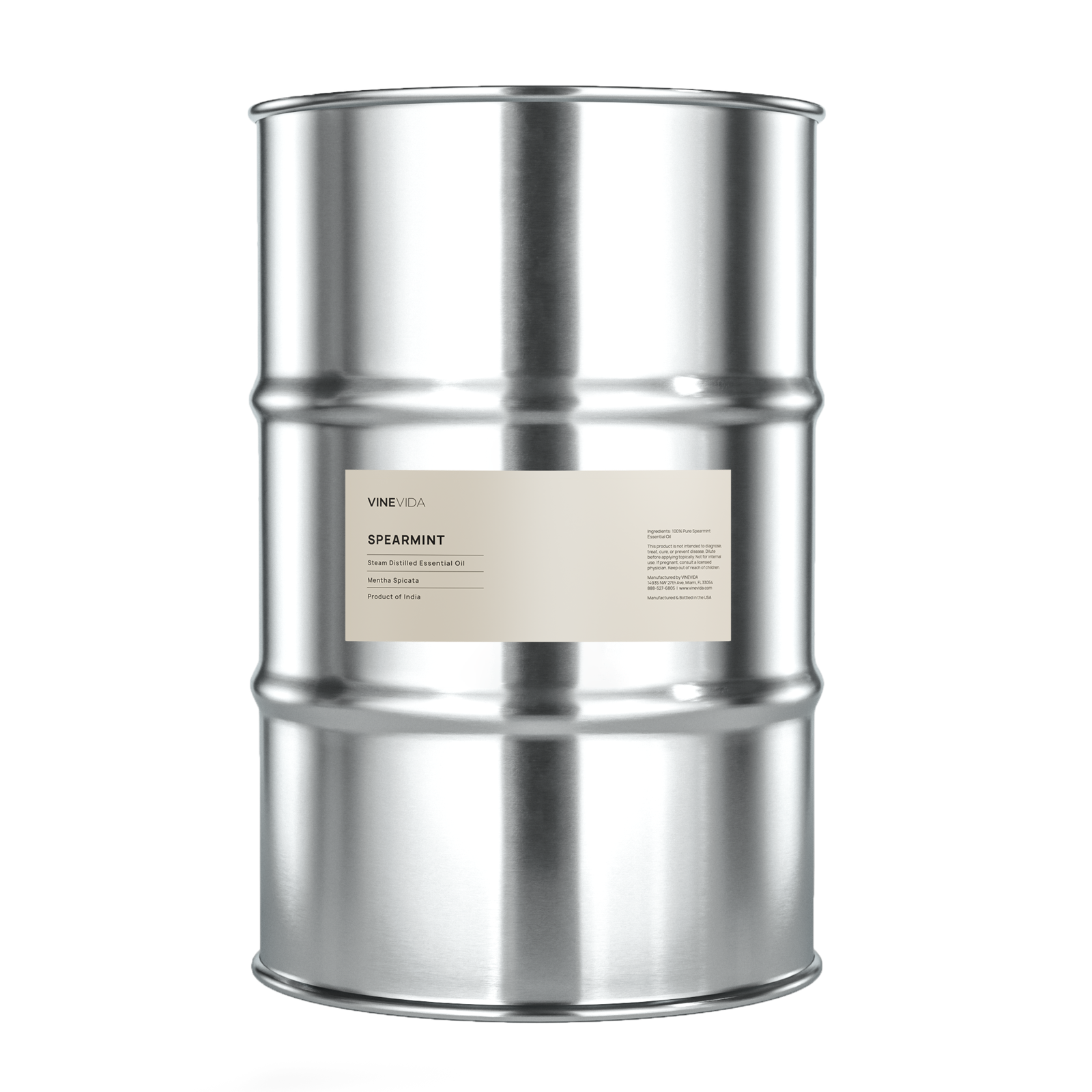






 IFRA Statement
IFRA Statement


















